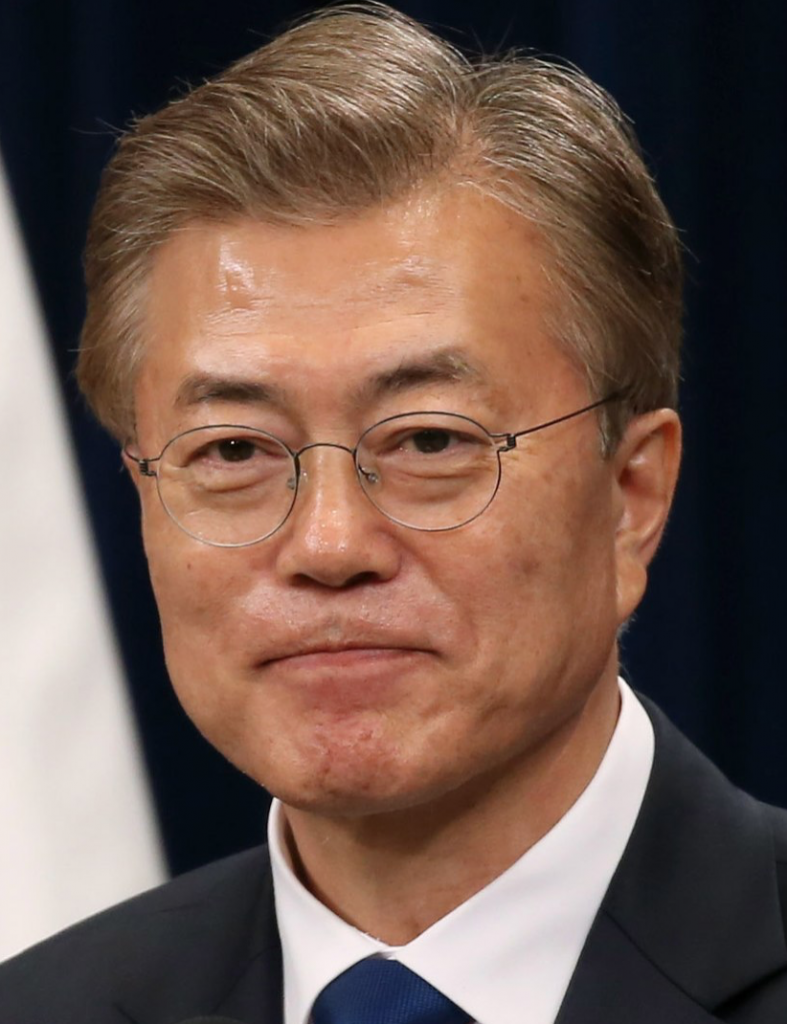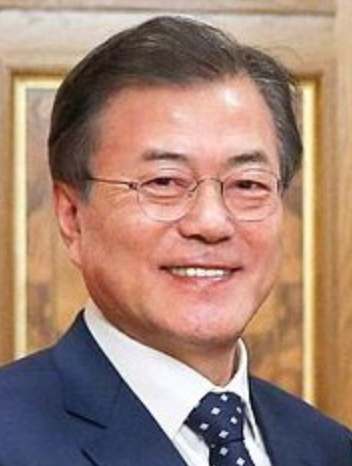
The current coronavirus pandemic has continued to delay political contests whether it be primaries in the United States or national general elections such as in the United Kingdom and France (Hollingsworth and Seo, 2020). South Korea, a country with over 10,500 confirmed cases, has decided to hold their regularly scheduled election while ensuring compliance with social distancing protocol. Through a newly adapted electoral system, South Korean voters will vote for 253 seats through a First-Past-the-Post system while the remaining 47 seats are selected through proportional representation (Kalinowski, 2020). This election will be the first national election held since the emergence of the pandemic (McCurry, 2020).
On April 15th, South Koreans will vote for all 300 National Assembly seats but previously conducted early voting procedures have allowed for 26.7% of the population to have already cast their votes. While it may seem that the virus would deter early voting, these rates have actually doubled since the 2013 election (Soendergaard Larsen, 2020). This increase is likely attributed to the role of the current ruling party in targeting the virus and the turnout rate is expected to continue to exceed that of past parliamentary elections (Hollingsworth and Kwon, 2020). Since the rise of coronavirus, the ruling Democratic party has seen a shocking increase in support after previous economic struggles and reports of scandals (McCurry, 2020). This election has generally served as a midterm evaluation for the ruling party and the pandemic has surprisingly worked to its political benefit as voters are ignoring previous policy mistakes because of his effective response to the virus in comparison to other countries (Sang-Hun, 2020).
The main opposition party, the United Future Party, has tried to convince voters that the tragic results of the virus such as increasing death rates are a result of the current government’s failures to respond quickly (Sonendergaard Larsen, 2020). This method was not as effective as intended as the current President Moon Jae-in has continued to see his approval ratings rapidly increase just before the election and the mainly Democratic Party areas have the largest turnout rates through the early rounds (Soendergaard Larsen, 2020). Essentially, the election has become a race surrounding responses to this unprecedented crisis revealing the limited focus of the campaign and the difficulties of digital mobilization.
Voters did not necessarily oppose holding the election as voting continues to stand as a symbol of practicing and maintaining democracy in South Korea (Hollingsworth and Seo, 2020). The state and election commission took extreme precautions in the early round and are likely to continue to take caution in maintaining social distancing. Polling stations are repeatedly sanitized, and voters have their temperature checked upon entry. Also, the state has lifted restrictions for those self-quarantining after polling hours, just so they can go out and vote. For those who are most affected, vote-by-mail remains an option (Hollingsworth and Seo, 2020).
Voters generally believed that postponing the election would be more anti-democratic than hosting it under these conditions, but the potentially lower turnout can prove problematic for democracy. Delaying elections quickly becomes difficult as elections are an extreme logistical challenge as they are both time consuming and expensive (Hollingsworth and Seo, 2020). Rescheduling elections in the context of the coronavirus has also led to increased presidential power in other countries and holding a legislative election should hopefully bring power back to the legislature in various countries such as Hungary. For South Korea, this election serves as a way to assess the power of the legislature and compare it with President Jae-In’s (Hollingsworth and Seo, 2020). While it was predicted that holding the election in these conditions would decrease voter turnout, the relevance of the pandemic has become a platform for voters, and they want to either reward or punish the current government for their response to the situation.
Continuing to hold the election in South Korea emphasizes the role of accountability and the incumbent advantage in online campaigns, which inevitably leads to a change in strategy for mobilizing voters. Campaigns have continued to prove quite difficult in these unprecedented times, but incumbency still provides an advantage for President Moon Jae-In. As the incumbent, he can easily spread information to those who cannot afford or access online platforms (Hollingsworth and Seo, 2020). New individualized campaign strategies for the ruling party like going out to publicly disinfect parks or using the internet to target voters have proved to limit the issues campaigns cover and reduces meaningful communication often through physical contact (Hollingsworth and Seo, 2020). Critics have claimed that the opposition party while effective in the beginning failed to fulfill the responsibilities of an opposition party which is the reason the party will most likely fall short (Soendergaard Larsen, 2020). The central claim of those criticizing the opposition is that they did not provide a believable alternative. There was no reason for anyone to believe that a different government would be better (Soendergaard Larsen, 2020). Continuing to hold the election allows for citizens to keep candidates accountable for their response to the virus and whether a change in government is worth it. There is something to be said about the significance of voting as a right as and its relevance in this unique political climate.
Due to the continuation of an election during this global crisis, some important questions to ask include how much should the campaign promises change based on the current climate? Essentially, how much should an incumbent’s promise change from term to term? If an incumbent handles a situation either incredibly well or poorly to a crisis, how much weight should that behavior hold in the next election? While accountability remains important, is there a balance or what factors determine what issues are most important in a campaign? It is quite difficult to answer these questions in the midst of the coronavirus crisis as it has dominated the media and other political, economic, and social factors that continue to influence voting.
Works Cited
Agosta, Nico. “The Rise of Authoritarianism in Hungary.” Connect Global Politics, WordPress, 15 Apr. 2020, www.connect.peterpenar.org/uncategorized/the-rise-of-authoritarianism-in-hungary/. Accessed 15 Apr. 2020.
“Coronavirus Cases.” Worldometer, 15 Apr. 2020. Accessed 15 Apr. 2020.
Moon Jae-In May 2017. 10 May 2017, commons.wikimedia.org/wiki/File:Moon_Jae-in_May_2017.jpg. Accessed 15 Apr. 2020.
Hollingsworth, Julia, and Jake Kwon. “South Koreans Head to Polls despite Coronavirus Outbreak.” CNN, 15 Apr. 2020, www.cnn.com/2020/04/15/asia/south-korea-election-intl-hnk/index.html. Accessed 15 Apr. 2020.
Hollingsworth, Julia, and Yoonjung Seo. “South Korea Is Holding an Election during the Coronavirus Crisis. Other Countries Are Postponing Theirs. Either Way Democracy May Suffer.” CNN, 14 Apr. 2020, www.cnn.com/2020/04/13/asia/elections-coronavirus-pandemic-intl-hnk/index.html. Accessed 14 Apr. 2020.
Kalinowski, Thomas. “South Korea’s Election: Beyond Coronavirus.” The Diplomat, 10 Apr. 2020, thediplomat.com/2020/04/south-koreas-election-beyond-coronavirus/. Accessed 15 Apr. 2020.
McCurry, Justin. “South Korea Votes in First National Election of Coronavirus Era.” The Guardian, 13 Apr. 2020, www.theguardian.com/world/2020/apr/14/south-korea-votes-in-first-national-election-of-coronavirus-era. Accessed 14 Apr. 2020.
Sang-Hun, Choe. “South Korea Goes to the Polls, Coronavirus Pandemic or Not.” The New York Times, 10 Apr. 2020, www.nytimes.com/2020/04/10/world/asia/coronavirus-south-korea-election.html?searchResultPosition=16. Accessed 14 Apr. 2020.
Soendergaard Larsen, Morten. “South Korea Holds World’s First National Coronavirus Election.” Foreign Policy, 13 Apr. 2020, foreignpolicy.com/2020/04/13/south-korea-first-national-coronavirus-election/. Accessed 14 Apr. 2020.

